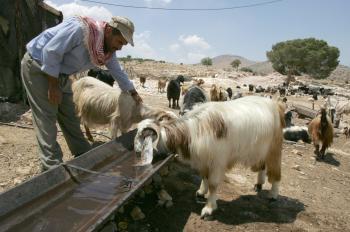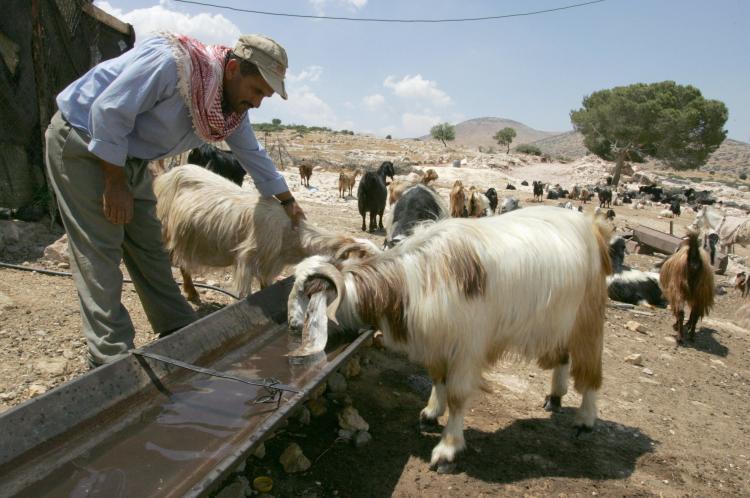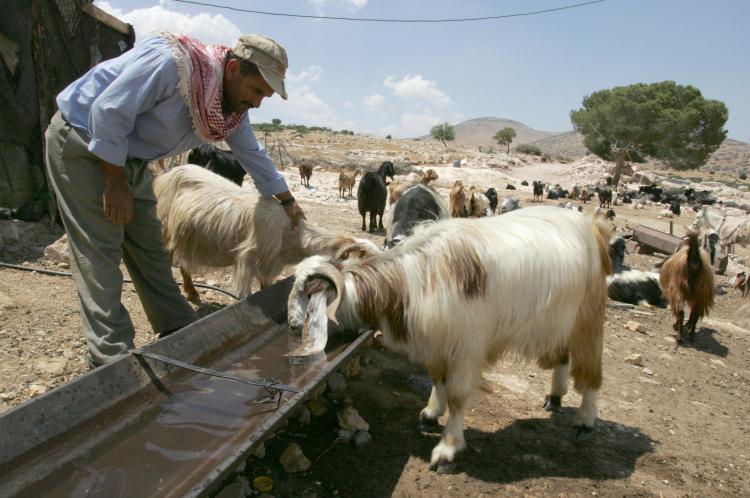A World Bank report is noting the complete dependence of the West Bank and Gaza (WBG) on scarce water resources shared and largely controlled by Israel. Water allocation to the Palestinians was establish under the 1995 Oslo interim agreement and is still in effect today.
The report was initiated at the request of the Palestinian Authority (PA). Its goal was to develop a balanced analysis and to create awareness of the factors restricting WBG’s water sector development.
EcoPeace/Friends of the Earth Middle East (FoEME) a regional environmental organization where Palestinians, Israelis and Jordanians cooperate, is calling for Israel and WGB to free water needs from being held hostage in their conflict.
Israel and WBG Are Not Equal Partners
Whereas Israel has established an efficient water infrastructure and management, the PA is struggling to attain the basic level of infrastructure and service of a low-income country. Water investment in WBG has dropped to very low levels, is fragmented and inefficient, and perpetuates low utility performance.
The World Bank report highlights that the present structure of the JWC gives virtual veto power to the Israeli side on all shared water issues.
“Indeed, availability of water resources is highly disparate, with fresh water per capita in Israel approximately fours times that of WBG,” said the report.
Furthermore, since 2000, because of security problems, the Israeli-imposed movement and access restrictions, which consist of not only physical impediments but also of decision-making policies, have further impaired Palestinian access to water resources, infrastructure development and utility operations. For example the restrictions on implementation can make the movement of a single pipe a logistical and administrative challenge.
To relief the situation, the study recommends the adoption of an agenda that clearly addresses identified shortcomings in water resource development, and advocate equal power in governing the planning and development of Palestinian water resources and infrastructure.
Israel’s Foreign Ministry Spokesman stated that “Israel has fulfilled all its obligations under the water agreement regarding the supply of additional quantities of water to the Palestinians.” The Spokesman commented that “Israel has even extensively surpassed the obligatory quantity” and that the PA actually have access to twice as much water than Israel is committed to supplying according to the agreement. The Palestinians, on the other hand, have significantly violated their commitments under the water agreement, regarding important issue as drilling wells without the authorization of the Joint Water Commission (JWC), he said.
Israel, however, may not be taking into consideration the problems of movement and access restrictions mentioned in the World Bank report, and has issued complaints that “the Palestinians are not handling the sewage system” as mentioned in the said agreements.
A year ago, an Israel Green organization decided to implement a wetland sewage system in a Palestinian village situated on the “mountain aquifer” to contain its pollution. The organization reported huge problems in getting permits and was threatened with demolition of their work by the Israeli authorities in WBG.
Regional Water Management Policy
Up to now, Israel has considered the water crisis as a national problem and found solutions for the Israeli population’s needs only. During a seminar entitled “Israel’s Water Policy” held in Kineret College, professor Ychezkel Dror for the Hebrew University of Jerusalem stated,“We should consider long term policy in a Middle East context. Under peace agreements the situation of Israel having much more water than it neighbors can bring about political instability in the region.”
Giora Shacham, a geologist from the Technion added, “If we used too much desalinated water in a region with critical water scarcity, the neighboring countries will demand natural water resources that have been disputed for years.”
Freeing Water Needs From the Current Conflict
Friends of the Earth Middle East (FoEME) has called on the Israeli government and the Palestinian Authority to replace the failed JWC with a new joint water management structure.
According to FoEME the JWC has failed as it is not providing the water quantities needed to Palestinians and not protecting shared Israeli/Palestinian water resources from large scale pollution.
“A key problem with the JWC is that it has disempowered the Palestinians from being able to take responsibility for water management. The Palestinians receive so little of the shared water that Israelis must ask themselves, what incentive do Palestinians have to protect shared water from pollution?” said Gidon Bromberg, Israeli Director of FoEME.
The Green organization called for the replacement of the JWC with a new body with equal powers and responsibilities.
Nader Khateeb, FoEME Palestinian Director said, “After 15 years of JWC failure, the results have proven to be catastrophic. It’s urgent to free the water sector and water needs of both peoples from the current conflict.”




